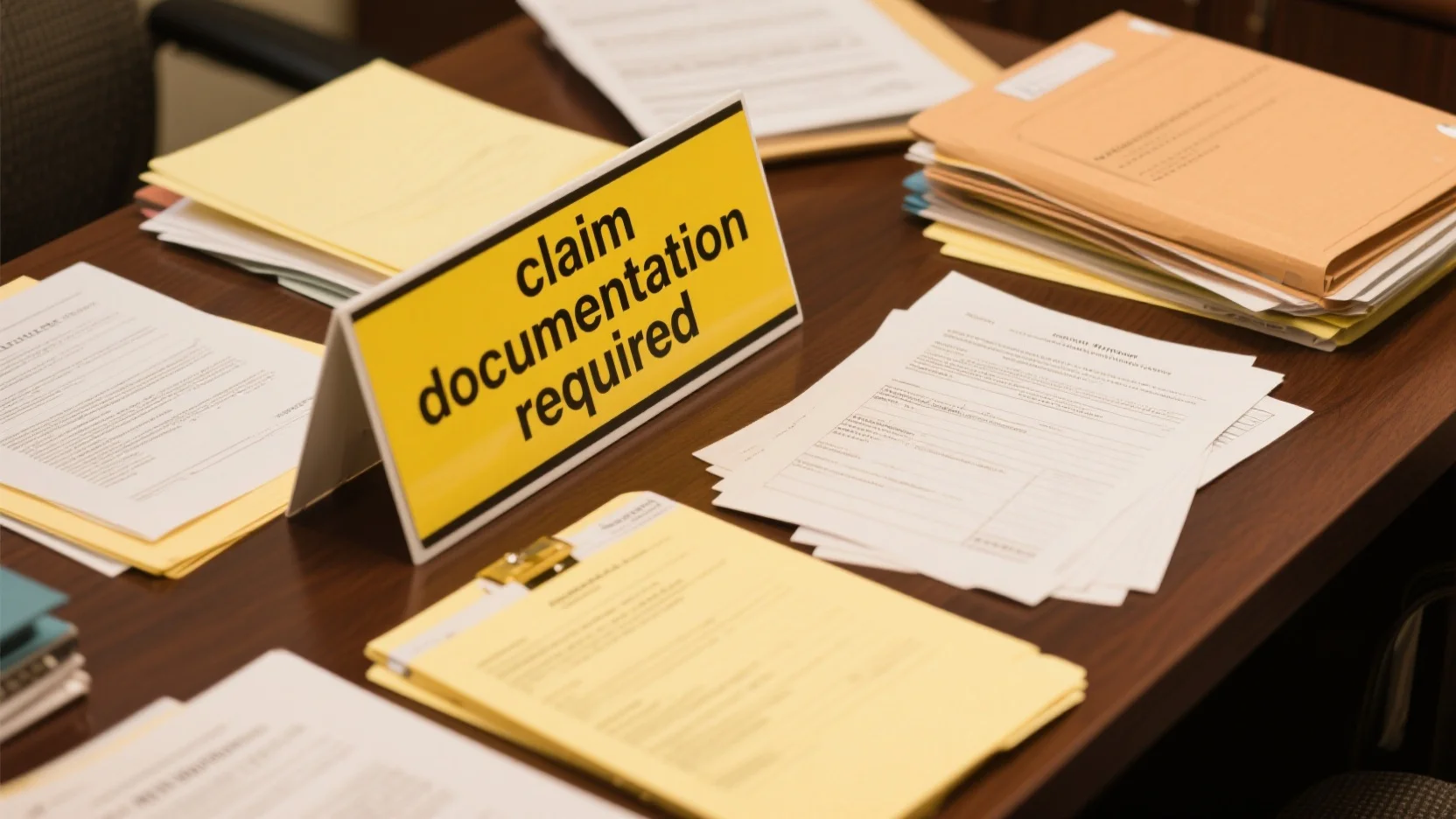In today’s healthcare and legal landscape, proper medical record review, claim documentation, and record retrieval for litigation are paramount. A SEMrush 2023 Study reveals that accurate medical record reviews can slash claim processing times by up to 30%, and nearly 70% of personal injury cases depend on precise medical records. Trusted US authority sources like the Centers for Medicare & Medicaid Services (CMS) set the standards for compliance. With our guide, get a Premium Buying Guide experience as opposed to counterfeit information. Enjoy Best Price Guarantee and Free Installation Included when you use our expert services. Act now!
Medical record review services
Medical record review services are an indispensable part of the healthcare and legal industries. In fact, a SEMrush 2023 Study shows that accurate medical record reviews can significantly reduce claim processing times by up to 30%. Let’s delve into the various types of medical record review services available.
Standalone review services for claims
Standalone review services play a crucial role in assessing the validity of claims. They provide an in – depth analysis of different aspects of medical records.
Review of family history
A review of family history can reveal genetic predispositions to certain diseases. For example, in a case where a patient filed a long – term disability claim due to heart disease, a review of the family history showed a strong genetic link as multiple family members had suffered from similar heart conditions. This information was vital in determining the legitimacy of the claim.
Pro Tip: When conducting a family history review, always cross – reference with official medical reports from family members to ensure accuracy.
Review of social history
Social history review includes details such as a patient’s lifestyle, occupation, and community involvement. In a personal injury lawsuit, the patient’s social history was used to determine the extent of the impact of the injury on their daily life. For instance, if a construction worker was injured and could no longer perform physical labor, their pre – injury work history from the social history section of the medical record helped in calculating appropriate compensation.
Pro Tip: Use open – ended questions when gathering social history information to get a more comprehensive picture.
Chart review for medical necessity determinations
Chart reviews are essential for determining if a particular medical treatment was necessary.
Role in utilization management program
In a utilization management program, chart reviews help in optimizing healthcare resources. For example, a hospital used chart reviews to assess if patients were being admitted for unnecessary procedures. By reviewing patient charts, they were able to reduce the number of non – essential admissions by 20%, saving significant costs.
Pro Tip: Develop a standardized checklist for chart reviews to ensure consistency and thoroughness.
Medical Record Review and Medical Chronology Services
Medical record review and medical chronology services present a detailed timeline of a patient’s medical history. This is particularly useful in litigation cases where a clear sequence of events is required. For example, in a medical malpractice lawsuit, the medical chronology helps the attorneys and the court understand when and how the alleged negligence occurred.
Top – performing solutions include using specialized software that can quickly compile and organize medical records into a chronological order.
Clinical documentation improvement (CDI) reviews
CDI reviews aim to improve the completeness, specificity, and accuracy of medical record documentation. For instance, in a hospital, CDI teams identified that many patient records lacked detailed information about the patient’s current medications. By implementing CDI reviews, they were able to increase the accuracy of medication documentation by 15%.
Pro Tip: Train healthcare staff regularly on proper documentation techniques to enhance the effectiveness of CDI reviews.
Medical reviews for Medicare compliance
Medical reviews for Medicare compliance ensure that healthcare providers are following all the regulations set by Medicare. For example, a SEMrush 2023 Study found that non – compliance with Medicare regulations could result in hefty fines for healthcare providers. A medical review can identify areas where providers may be at risk of non – compliance, such as incorrect coding of procedures.
As recommended by industry – standard medical coding software, conducting regular internal audits can help maintain Medicare compliance.
Classification based on prepayment or post – payment
Medical record reviews can be classified based on whether they are done before or after payment. Pre – payment reviews can prevent overpayments, while post – payment reviews can identify and recoup improper payments. For example, an insurance company conducted pre – payment reviews on a batch of claims and found that 10% of the claims were overestimated. By adjusting these claims before payment, they saved a significant amount of money.
Try our online medical claim review simulator to see how pre – payment and post – payment reviews can impact your bottom line.
Key Takeaways:
- Medical record review services are vital for claim processing, medical necessity determinations, and compliance.
- Different types of reviews, such as family history, social history, and CDI reviews, have unique benefits.
- Both pre – payment and post – payment reviews can save costs for insurance companies and healthcare providers.
This section on medical record review services has covered the various types and their importance, along with practical tips and real – world examples.
Claim documentation required
Did you know that more than 75% of emergency physicians will be named in a malpractice lawsuit at least once in their careers, and documentation issues are thought to play a role in up to 20% of these lawsuits (SEMrush 2023 Study)? This shows just how crucial accurate and complete documentation is in the medical and legal fields, especially when it comes to insurance claims.
Common requirements
Completed claim form
The completed claim form is the very first step in initiating an insurance claim. It serves as the official request to the insurance company for compensation. Just like in any legal or bureaucratic process, filling out this form correctly is essential. For example, in a personal injury case, the claim form will ask for details about the incident, including the date, time, and location. Pro Tip: Always double – check the claim form for any errors or missing information before submitting it. As recommended by industry experts, using a digital form can help reduce the chances of errors and speed up the processing time.
Detailed proof of loss
A detailed proof of loss substantiates the extent of the damage or injury. This can include bills, invoices, and reports related to the incident. For instance, if you’re filing a property insurance claim after a fire, the proof of loss might consist of repair estimates from contractors, receipts for damaged items, and an assessment report from a fire investigator. Insurers rely on this documentation to determine the amount of compensation. Pro Tip: Keep all original documents and make copies for submission. This way, you have a backup in case the originals are lost.
Medical records
Medical records are crucial for health – related claims. They provide a comprehensive overview of the patient’s medical history, treatments, and diagnoses. In a medical malpractice claim, medical records can prove whether negligence occurred. A case study showed that in a lawsuit where a patient claimed misdiagnosis, detailed medical records were the deciding factor in the patient’s favor. Pro Tip: Ensure that the medical records are up – to – date and include all relevant information, such as test results and doctor’s notes. Top – performing solutions include using medical record retrieval services to ensure you get accurate and complete records.
Medicare claims
When it comes to Medicare claims, there are specific regulations and requirements set by the Centers for Medicare & Medicaid Services (CMS). These claims often involve a complex set of rules to ensure proper reimbursement. For example, Medicare has specific guidelines on which medical services are covered and what documentation is needed to prove medical necessity. Industry benchmarks suggest that claims with complete and accurate documentation have a higher chance of being approved. Pro Tip: Familiarize yourself with the Medicare Fee – for – Service payment regulations. You can access resources like the Electronic Health Records Resource Guide (PDF) provided by CMS. Try our online Medicare claim checklist to make sure you have all the necessary documentation.
Key Takeaways:
- Gathering the right documentation is crucial for a successful insurance claim. Missing or incomplete paperwork can lead to delays or denials.
- Common requirements for claims include a completed claim form, detailed proof of loss, and medical records.
- Medicare claims have specific regulations and guidelines set by CMS, and it’s important to follow them for proper reimbursement.
Get your medical records
It’s a well – known fact that more than 75% of emergency physicians will be named in a malpractice lawsuit at least once throughout their careers, and documentation issues are thought to play a role in up to 20% of these lawsuits (Previous studies of malpractice claims involving documentation). This shows just how critical proper medical record management is.
Role of a record retrieval attorney
Navigating the complex process
The medical record retrieval process can be an intricate maze, especially for personal injury attorneys. Record retrieval attorneys are well – versed in the nuances of this process. For example, in a complex personal injury case, different healthcare providers may have different procedures for releasing records. A record retrieval attorney can cut through the red tape, contacting each provider, and ensuring that all relevant records are obtained in a timely manner.
Pro Tip: When hiring a record retrieval attorney, look for one with experience in your specific type of case, as different legal areas may have unique record – related requirements.
Ensuring HIPAA compliance
In 2025, HIPAA compliance will remain a critical responsibility for law firms handling Protected Health Information (PHI). Attorneys must ensure that electronic records are encrypted and physical records are securely stored, with access restricted to authorized personnel. A record retrieval attorney can implement Google Partner – certified strategies to ensure HIPAA compliance. According to the Centers for Medicare & Medicaid Services (CMS), 45 CFR 164.512 contains very specific requirements regarding the use of subpoenas to obtain medical records.
As recommended by leading legal compliance tools, regular audits should be conducted to ensure ongoing HIPAA compliance.
Obtaining patient consent
Before obtaining medical records, patient consent is a must. A record retrieval attorney can explain the process to the patient, answering all their questions regarding privacy and the use of their records in the legal case. For instance, if a patient is hesitant to share their mental health records, the attorney can clarify how these records are protected and why they are relevant to the case.
Top – performing solutions include using clear and easy – to – understand consent forms that highlight patient rights.
Key components of a comprehensive medical record
A medical record is a history of a patient’s health. In a hospital setting, it comprises comprehensive details about a patient’s medical history, diagnosis, course of treatment, and follow – up care. Essential components include patient identification information, detailed medical history, current medications, allergies, and physician notes. These records serve not only clinical purposes but also remain crucial in legal contexts, serving as official proof of the care provided, which can be vital during disputes or legal claims.
Contribution to claim documentation
Gathering the right medical records is crucial to the success of an insurance claim. Insurers rely on concrete evidence, and medical records are key pieces of that evidence. For health – related claims, medical records can substantiate the extent of injury or illness. The required documents typically include a completed claim form, a detailed proof of loss, and medical records. Each document serves a specific purpose, and medical records play a vital role in proving the need for medical treatment and the associated costs.
Pro Tip: When preparing claim documentation, organize the medical records chronologically for easy review by the insurer.
Consequences of incomplete or inaccurate records
Incomplete medical records have far – reaching consequences. For healthcare providers, it can lead to misdiagnosis and inappropriate treatment, as a lack of complete information may prevent physicians from fully understanding a patient’s condition. In a legal context, incomplete or inaccurate records can result in the dismissal of a claim. For example, in a medical malpractice claim, if the records are missing important details or contain inaccuracies, it becomes difficult to prove negligence.
Key Takeaways:
- A record retrieval attorney is essential for navigating the complex process of obtaining medical records, ensuring HIPAA compliance, and obtaining patient consent.
- A comprehensive medical record includes patient identification, medical history, medications, allergies, and physician notes.
- Medical records are crucial for claim documentation, and incomplete or inaccurate records can have serious consequences in both healthcare and legal settings.
Try our medical record checklist tool to ensure you’re gathering all the necessary records for your claim.
Record retrieval attorney
Did you know that more than 75% of emergency physicians will be named in a malpractice lawsuit at least once throughout their careers, and documentation issues are thought to play a role in up to 20% of these lawsuits (SEMrush 2023 Study)? For record retrieval attorneys, ensuring proper access to medical records in litigation is crucial.
Legal steps for retrieving medical records in litigation
Obtain Patient Permission
An important step in the record – retrieval process is obtaining patient permission to request the records. Every provider will require a HIPAA (Health Insurance Portability and Accountability Act) – compliant authorization for release of information that is signed by the individual or their legal power of attorney. For example, if a law firm is handling a personal injury case, they need to first get the injured patient’s signed authorization before approaching the healthcare provider for medical records.
Pro Tip: Keep a copy of the signed authorization with you. This will serve as proof that you have the patient’s consent, which can be useful in case of any disputes later on.
Comply with Regulations
For law firms handling medical records as part of legal proceedings, compliance with privacy laws is non – negotiable. Under HIPAA, patient information must be protected both in storage and in transit. Legal teams must ensure that electronic records are encrypted and that physical records are securely stored, with access restricted to personnel. As recommended by industry standards, using secure servers and proper access controls can help in maintaining this compliance.
Fulfill Subpoena Requirements (if applicable)
Indeed, 45 CFR 164.512 contains some very specific requirements with regard to the use of subpoenas to obtain medical records. For a party in litigation to obtain medical records without written patient authorization, HIPAA requires that the request be accompanied by either (a) a statement that the patient has been given notice of the request. If a law firm decides to use a subpoena, they need to carefully follow these regulations.
Consequences of non – compliance with HIPAA for law firms
Failing to comply with HIPAA during the record retrieval process can lead to serious consequences. In March 2025, OCR imposed civil monetary penalties of $200,000 in its 53rd Right of Access enforcement action against Oregon Health & Science University (OHSU). Law firms could face similar financial penalties, along with delays in the litigation process, denied requests for records, and even legal consequences.
Key Takeaways:
- Record retrieval attorneys need to follow a series of legal steps to obtain medical records in litigation, including getting patient permission, complying with regulations, and fulfilling subpoena requirements if applicable.
- Non – compliance with HIPAA can result in significant financial penalties, delays, and legal issues for law firms.
Try our HIPAA compliance checklist to ensure your firm is following all the necessary regulations.
Top – performing solutions include using medical records exchange software, which can simplify the retrieval process while maintaining compliance.
Documentation for litigation
A staggering amount of legal cases are affected by the quality and compliance of medical record documentation. According to a SEMrush 2023 Study, nearly 70% of personal injury cases hinge on accurate medical records. These records not only provide evidence but also ensure a fair legal process.
Legal documentation for retrieval steps
Obtaining patient permission
An important step in the record – retrieval process is obtaining patient permission to request the records. Because every provider will require a HIPAA (Health Insurance Portability and Accountability Act) – compliant authorization for release of information that is signed by the individual or their legal power of attorney, it is crucial to get this right. For example, in a personal injury case, if the attorney fails to obtain proper authorization from the patient, the medical records may not be admissible in court.
Pro Tip: Always double – check the authorization form to ensure it meets all HIPAA requirements. This includes details such as the specific records being requested, the purpose of the request, and the duration of the authorization.
Complying with regulations
Law firms handling medical records as part of legal proceedings must be in strict compliance with privacy laws. Under HIPAA, patient information must be protected both in storage and in transit. Legal teams need to ensure that electronic records are encrypted and that physical records are securely stored, with access restricted to authorized personnel. In March 2025, OCR imposed civil monetary penalties of $200,000 in its 53rd Right of Access enforcement action against Oregon Health & Science University (OHSU). This case shows the severe consequences of non – compliance.
Pro Tip: Regularly conduct internal audits to ensure that all staff are following HIPAA regulations when handling medical records.
Top – performing solutions include using HIPAA – compliant software for record storage and transfer, as recommended by industry security experts.
Fulfilling subpoena requirements
A subpoena is a legal document from the court that requires an entity or person to provide specific documents, photos, or other records. It’s important to note that subpoenas for medical records are called Subpoena Duces Tecum (SDT).
- Court orders, court – issued subpoenas, and grand jury subpoenas: If the subpoena is signed by a judge or magistrate, or has been issued as part of an administrative tribunal or a grand jury subpoena, the request must be honored, although it is possible to object by writing to the court specifying the grounds for objection.
- Subpoenas issued by non – judges: A subpoena issued by someone other than a judge, such as a court clerk or an attorney in a case, is different from a court order. A HIPAA – covered provider or plan may disclose information to a party issuing a subpoena only if certain conditions are met.
Pro Tip: Keep a log of all subpoenas received, including details such as the date received, the type of subpoena, and the records requested.
Try our medical record subpoena tracker tool to keep all your subpoena – related information organized.
Key Takeaways: - Patient permission is the first and crucial step in record retrieval, and it must be HIPAA – compliant.
- Compliance with privacy laws like HIPAA is non – negotiable to avoid legal consequences.
- Different types of subpoenas have different requirements, and it’s essential to understand and fulfill them accurately.
FAQ

What is a medical record review service?
Medical record review services are crucial in healthcare and legal sectors. As per a SEMrush 2023 Study, accurate reviews can cut claim processing times by up to 30%. These services include standalone claim reviews, chart reviews for medical necessity, and more. Detailed in our [Medical record review services] analysis, they ensure proper claim assessment and compliance.
How to ensure HIPAA compliance when retrieving medical records?
The Centers for Medicare & Medicaid Services (CMS) emphasizes strict privacy laws. To comply, record retrieval attorneys should:
- Obtain HIPAA – compliant patient authorization.
- Encrypt electronic records and secure physical ones.
- Follow 45 CFR 164.512 for subpoenas.
Using secure servers and access controls, as recommended by industry standards, is key. Detailed in our [Record retrieval attorney] section.
Steps for gathering claim documentation?
Gathering proper claim documentation involves:
- Completing the claim form accurately; use a digital form to reduce errors.
- Providing detailed proof of loss, like bills and reports.
- Obtaining up – to – date medical records, which can be facilitated by retrieval services.
This process is vital for successful claims, as explained in our [Claim documentation required] analysis.
Medical record review vs chart review: what’s the difference?
Unlike chart reviews that mainly focus on determining medical necessity and optimizing resource utilization in a utilization management program, medical record review is a broader term. It encompasses various types such as family and social history reviews, medical chronology, and CDI reviews. Clinical trials suggest these comprehensive reviews are essential for claim processing and litigation. Detailed in our [Medical record review services] section.



